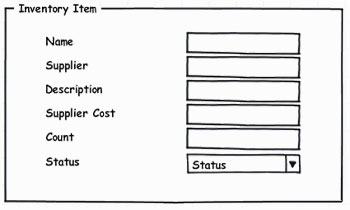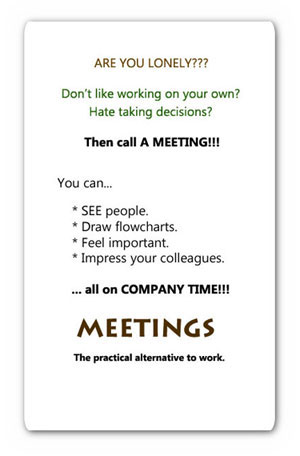The post is slightly long winded. You might want to grab a pop corn, sit back and relax as you read through this one. We are going to talk about about a horribly wrong management approach that a LOT of managers out there seem to be using even today despite of it's obvious disadvantages.

I could just tell you what the management approach is but I thought I'd take you all the way to India and introduce you to how Indian parenting worked when we were young, how we grew up and what civilized, educated parents in India are starting to learn about the human mind that the MBA graduates with their fancy courses in Resource Management just do not understand.
Ready? Let's start.
Unlike a few other countries out there, in India slapping your kids is perfectly acceptable and allowed under the law. This means that Indian parents are set loose and are free to slap their kids to discipline them every time their kids are found creating a ruckus. With upbringing of the kids mostly considered a social responsibility of the family where the government or law enforcement has very little involvement you would think that most Indian kids get slapped all the time.
The reality of it however, is very different. More and more civilized, educated parents of the Indian middle class family are starting to realize that even though you are "technically" allowed to, slapping you kid more even a couple of times in his enter lifetime is a stupid thing to do. All you do with beating is create rowdy goons and hoodlums.
This was not always the case however.
When we were young, casually slapping your kid to quite him down was considered pretty normal. Our neighbors for instance (who for the purposes of this post, we will refer to as 'The Fredsons') had no problem in slapping their kid once in a while when the kid was acting like a brat. Little Fredson played with us and as youngsters it was not an uncommon site for us to see Mr. Fredson come out and give his son a mild slap every time we hit someone's glass window with a ball and shattered it into pieces while playing. The game of Cricket would end instantly, Little Fredson would be slapped smack on his cheeks, though not very hard. He would cry for a few minutes, our parents would call us to our homes and that would be the end of the game (for that day).
Even in those times my parents took a slightly different approach of "talking" with me and my brother when we made stupid demands or acted rowdy. Instead of traditional slapping we received perfectly rational explanations on why we were not supposed to be doing whatever it is that we were doing. It would be a perfectly legitimate grown up discussion. Explanations were provided. Logic was used extensively. If we lost the argument, we obeyed, if we won, we had our way. It was that simple. Heck! It was a meritocracy where your ability to present your side of the story and use logic could actually let you get away with stuff that other kids our age did not even dream of getting away with.
Even back then, my parents understood a fundamental rule of parenting that most Indian parents did not understand. Slapping your kid has two aspects to it that stops your kid from doing the same thing again. The psychological aspect of it, which is to say, the kid feels really bad about having disappointed his parents. This aspect is really powerful. If you are a kid who loves his parent, their slapping you tells you beyond doubt that you have let them down. Then there is the physical aspect. Slapping can hurt, one, your body and two, your ego. It is this pain that is supposed to prevent a kid from doing the same thing again.
The problem with slapping your kid however, is that once you have done it a couple of time, the psychological impact of it wears out. Here is why this happens. You see, we (human beings) calibrate ourselves depending on the world around us. As human beings we are not very good at seeing ourselves as pathetic creatures who keep hurting others all the time. Our self esteems are much higher than we think they are. If you were the kid who was getting slapped, the first time you were slapped you would feel really bad psychologically. You just let your parents down.
The next time it happens, it feels just as bad. The third time it happens you begin tuning yourself. If it happens a little more frequently, your perspective starts changing and your mind tells you, "Bullshit! They seem to see a problem with everything I do. You know what? Maybe there is something wrong with them. Maybe they are just being too hard on me". There. The psychological aspect that was supposed to make you feel bad and stop you from doing the same thing again is gone. After all, there is something wrong with them. It's their fault.
With the psychological aspect of it now gone, the physical aspect of it kicks in. This is the part where Aristotle often held an opinion that fear is synonymous to lack of habit. Scared of going on a battle? He asked. Fight a few battles, get used to the idea of being in a battle field, survive the battles, get habituated to the warfronts and your mind will stop getting all scared and worked up when you find yourself on the battle field. It is the best way to overcome your fear of public speaking if you ask me, but I digress. The point is, this is yet another example of the human brain tuning itself to the situation.
Once the psychological aspect of the beating has been thrown out of the picture, your getting habituated to the physical aspect of beating is just a matter of time and that just means your parents have to now increase the intensity of the beating to keep you from creating a ruckus again. Slaps have to get tighter. Grounding durations have to increase. And if your parents are to do that, chances are that you are going to tune yourself to the new intensity pretty soon. Your mind is going to get habituated to it. It's a vicious cycle capable of tarring relationships and creating goons or hoodlums out of perfectly smart kids.
With me so far? Good! Now let's get to the point.
Remember Little Fredson? Or the other kids who did get beaten up all the time. Let's replace them with your development team, the parents with the classical managers and the slapping with the classical "push" that the mangers apply on their team to make them work hard. You know, the classic, calling them in a meeting, putting them on spot or being "strict" with them to make them "work harder"? The push where you are constantly creating artifical deadlines, having three meetings a day and running around with Gantt Charts in your hand. Yeah! That push.
The problem with that push is that, just like beating up the kids to discipline them, there are the exactly two elements (the psychological aspect and the fear aspect) that are at play here. Your engineers (assuming that they are decent human beings and good programmers) want to do the right thing. Once you have applied the "push" on them a couple of times and used the carrot-or-stick to motivate them, you have tarred their psychological desire to do the right thing. Put simply, you have destroyed their intrinsic motivation and have replaced it with extrinsic motivation. You have turned perfectly smart human beings into animals who think with their lizard brain.
With this intrinsic motivation and the psychological element of doing the right thing, out of the picture, the only thing that is going to make them work hard next time is a "harder push". It's a vicious cycle capable of tarring relationships in a team and creating goons and hoodlums out perfectly smart, kickass ethical programmers which is EXACTLY similar to beating up your kids to discipline them.
With me so far? If you are a fresh pass out from one of those business schools you are knitting your eyebrows already. "It's easy for you to say Pops! You probably work in an organization where everyone around you tries to be reasonable with each other. We have to make our programmers ship. What do you suggest we do? Pamper them?", you ask.
Well, do exactly what my parents did while bringing us up. The approach was somewhat unconventional at that time but it worked. Actually, it did not just work, it did magic in our relationship and even today I feel just as comfortable in sharing most of my problems both in my personal and professional life with my parents. When they started these conversations, they moved from being parents to being peers. They became friends. And I didn't exactly drop out of school, become a goon or a thug. So I am going to assume that the approach they used worked and try to tweak it for you so that you can use it in your workplace. Ready? There are two simple steps involved here:
Step One: Listen
Ok, back to the basics. Step one is listening. Most managers (me included) don't know how to do this. That does not mean you stop trying. When someone approaches you with a problem, there is a devil in your mind saying, "I don't care about this microscopic shit he is talking about. All I care about is the ship date. It's just a effing database configuration! Surely they can figure out how to speed up the application, If I can just push them to...".
BAD MANAGER!!!
You developer is telling you something. Like I said, LISTEN.
Yeah, I know that devil is speaking in your head right now as you try to think of arguments and how this does not apply to your team and how your programmers are lazy scumbags who want to take you for a ride and you are thinking about those examples where Jack just took a leave three weeks before the ship day... and... and... and... he did not even pick up the phone when you called... you are thinking about your arguments. You are NOT listening to what I am telling you. You are NOT listening! And that means you probably do NOT listen to your developers when they come to you expecting help. See what I mean?
Stop Talking. Now! Start Listening.
Step Two: Talk With Empathy And Trust.
Empathy. Steve Yegge thinks that this the only thing you need to be a good manager. I think Steve Yegge is not just an awesome writer but he is also one hundred percent right. Your developers will bend over their back to rescue you out of a situation if you are open, candid, honest to them and are asking for help as a friend or a candid colleague.
"We are trying to expand the organization and get a bigger office by the end of this year, which is why we need new clients to sign up. Three of them have asked for a feature. I know you said it was going to take three months and I am going to try my level best to talk to them and see if we can make them wait for three months but if they do not budge and insist on getting it faster what do you think is a good estimate to give him? Also what are the features that you think we need to drop if we are to do it in a couple of months?"
See? That wasn't hard. The key here is, saying it with empathy. Add a little bit of genuine trust in your developer's judgment when he gives you a list of ALL those other features that you will have to drop. Don't argue with him telling how all those features are also important. Congratulations! You now have a programmer who is going to give you the best possible timeline without putting your project in danger, without going into hibernation, without writing F@#CK YOU Code and without shipping crap.
Do you really trust him? Are you just taking him for a ride? Is this a genuine urgency? Have you genuinely tried you level best to make sure that the urgency did not happen before you asked for help? Are you going to try your level best to see to it that this situation does not happen again?
Your developer is looking at you as you talk and these are the questions he is asking. He is going to be looking at everything you say very closely. Here is another advice: Don't try to fake empathy. Its like this: You'll get caught. How? Because you interviewed a hundred candidates and hired that smartest F@#cking candidate that you could find. You can't just expect him to isolate his intelligence to that time of the day when he is coding and leave it outside your office door when he enters your office. That's why, silly!
The Point
If you were lost in the digressions of the post and made no sense out of it what so ever, I feel your pain so I am going to make it simple for you and sum it all up. Striking similarities exist between good parenting and good management. If you want to learn good management, go watch a couple that has raised kids who respect them, love them, consider them to be friends and have not turned into goons, thugs or hoodlums. You will find ingredients of decently good management are all there.
Oh and every time you try to "push" your developers to work harder, might I remind you, that all you are doing is slapping your kid. I don't care how mild the slap is, you are adapting to a life style where your slaps are going to have to become tighter, your relationship with your team is eventually going to get tarred and you are going to turn perfectly responsible, ethical, smart working programmers into goons, thugs and lying scumbags who just do not give a damn. I'm just saying.
I wish I could give you a perfect recipe for teaching you how you can hire the best programmers out there or a perfect recipe for how you can stop being paranoid or how you can learn to trust human beings in general and your team in particular, but I can't. Teaching anyone how to trust someone else is hard. I suggest you start by unlearning everything about managing resources that you learnt in your stupid MBA course, throwing out your Gantt Charts, giving up the idea that you can control anything (leave aside the idea of controlling other human beings) and like I said, start practicing how to listen.
Yeah, that might get you started on the right track, but then it's a long way ahead and you are going to have to walk a few miles everyday. Oh and the journey does not have a exact well defined destination so if you are one of those managers hoping to find the end somewhere in the next three months and land with a team that has complete trust in you, super human output and unthinkable productivity, don't even bother to start. You are just going to wear yourself out.
On the other hand, if you see this as a life long journey and are willing to walk on this path of listening, caring about and trusting your team, for the rest of your life, you might go a long way, get a lot done and earn a few friends along the way. As always, all I can do is wish you good luck.







Comments are closed.